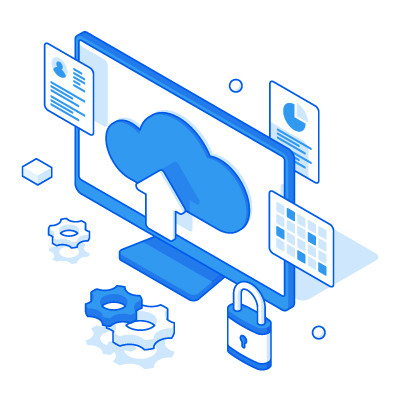Tech Solutions IT Blog
Downtime can be lethal to businesses, not only because too much can lead to failure, but it can easily waste a lot of your team’s time as everyone shifts gears to find a solution. This is why is it best to avoid it as often as possible.
That’s why we’re discussing three of the most prevalent causes of downtime, and what you can do to prevent them.
Technology is central to most businesses, which means that security is, by proxy, central to them as well. With cyberattacks on the rise, it’s more important than ever for you and your employees to be on the same page regarding cybersecurity. Today, we are looking at four ways you can ensure sound cybersecurity practices that even the most belligerent employees can follow… with the right support in place.
Other than the innovative jump from tape, data backup hasn’t seen too many great leaps forward, so to speak. Sure, businesses don’t have to worry about resource-intensive manual backups anymore, but the standard approach is so rock-solid that innovation isn’t necessarily needed at this point. Today, we are exploring the backup and disaster recovery process and how modern-day solutions have made an effective tool even better.
Nostalgia is a powerful force. It can drive us to look to the past for things we once loved, such as the music we listened to over the years. However, what if the music you loved was lost forever?
This could be the case for many, as older hard drives that archive this music have been discovered to have failed. Let’s examine the situation to see what lessons any small-to-medium-sized business can learn.
With collaboration playing center stage for most businesses, it’s no small wonder that file sharing is such a priority for SMBs. If you want to establish solid file-sharing practices, you need the right solutions. Today, we want to explore four ways you can establish an efficient and secure file-sharing platform.
Technology allows businesses to leverage high-impact practices, but only if that technology works the way it’s supposed to. Even simple issues with network connectivity problems, outdated technology, and cybersecurity can impact operations. The key to a successful technology deployment is understanding where potential disruptions could occur and taking measures to proactively address them ahead of time.
Today’s business needs to be able to share files and data securely and efficiently. This process may seem straightforward, but there are a lot of options that the business owner or manager needs to understand. In today’s blog, we look at some steps that will help you create a strong and secure file-sharing system.
The tech we have at our fingertips has the potential to dramatically enhance our productivity, support a great deal of creativity, and improve a person’s overall quality of life. What happens when you don't use this technology to its full potential? The answer is simple: you lose out. Let’s take a look at some of the negative effects of not using tech to its fullest.
Change is inevitable, especially in the dynamic world of business, where it is the driving force behind growth and innovation. Yet managing change can be a daunting task. It requires strategic planning, effective communication, and strong leadership.
This is where change management optimization comes into play. It's about refining your approach to change, making it more efficient and successful… particularly when it involves your IT and related processes.
One of the biggest signs that your business is doing well is that it is growing. When it starts to grow, you might notice that your office suddenly feels a little cramped. While moving an office can be stressful, it is often necessary to ensure that your company can continue to flourish. From an IT perspective, it can be even more challenging.
Your business is likely subject to certain compliance laws and regulations depending on the type of data you collect from your clients or customers. Today, we want to emphasize the importance of your business considering regulation and compliance when managing its data and IT resources, as without doing so, you run considerable risk.
Your business’ data holds incredible potential for helping you improve operations, but only when it is leveraged properly. To this end, you have to identify specific metrics that you are working toward and establish how these metrics are helping you make strides forward. IT offers plenty of metrics to help you make better decisions about operational efficiency.
It’s not hyperbole to suggest that many people in business these days prefer digital communication over the alternative. Smartphones have evolved over time and adapted to this need. That said, using a smartphone to communicate does still have its fair share of unwritten rules to follow. Let’s discuss some of the dos and don’ts of smartphones.



















